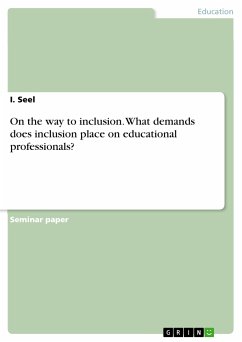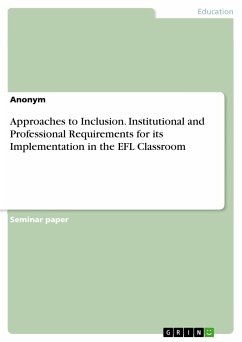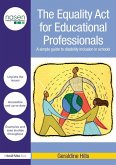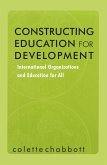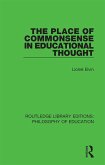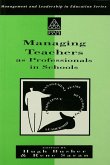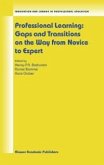Seminar paper from the year 2015 in the subject Didactics - Common Didactics, Educational Objectives, Methods, grade: 1,3, University of Applied Sciences Südwestfalen; Soest, language: English, abstract: With the signing of the UN Convention on the Rights of Persons with Disabilities, inclusion has become the focus of attention. With the demand for inclusion, a paradigm shift is developing in today's education system: all children, regardless of individual abilities and cultural or social affiliation, should grow up and learn together. "It is normal to be different." These frequently used words express that heterogeneity and diversity are part of our society. Today, a broad spectrum of hetero-geneity can also be found in day-care centres. Day care centres have an important role to play here: as the first non-family educational institution, they should lay the foundation for equal opportunities to participate in education and society. This means that kindergarten concepts should change in such a way that all individual life situations and particularities of the children must be taken into account. Who and how should realise it? Scientists and educators agree on this. The professionals working in the day care centre are the ones who are to implement and realise inclusion in practice. Their personality, their attitude, their motivation, their expertise, their influence and their willingness to cooperate are decisive for the implementation and success of inclusive processes in early childhood education. The limited scope of this paper only allows for a simplified questioning and so I would like to search for answers to the question "What demands does inclusion make on pedagogical professionals? I will start with the legal mandate to implement inclusion processes in day care centres and explain the goals of inclusive education in heterogeneous groups. I will then describe increasing demands on educators' competences and go into some aspects of shaping the inclusive process.
Dieser Download kann aus rechtlichen Gründen nur mit Rechnungsadresse in A, B, BG, CY, CZ, D, DK, EW, E, FIN, F, GR, HR, H, IRL, I, LT, L, LR, M, NL, PL, P, R, S, SLO, SK ausgeliefert werden.

